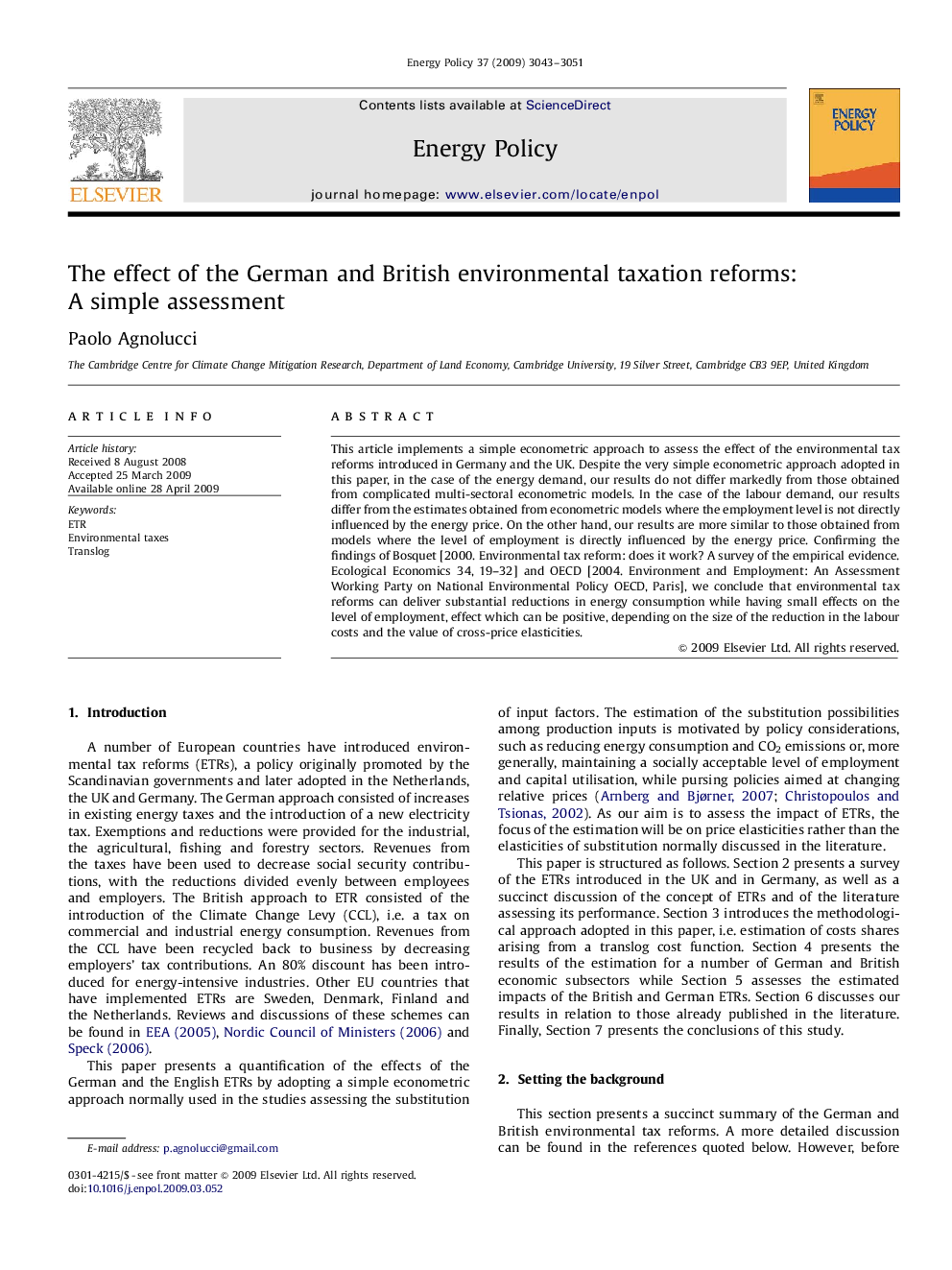| Article ID | Journal | Published Year | Pages | File Type |
|---|---|---|---|---|
| 996338 | Energy Policy | 2009 | 9 Pages |
This article implements a simple econometric approach to assess the effect of the environmental tax reforms introduced in Germany and the UK. Despite the very simple econometric approach adopted in this paper, in the case of the energy demand, our results do not differ markedly from those obtained from complicated multi-sectoral econometric models. In the case of the labour demand, our results differ from the estimates obtained from econometric models where the employment level is not directly influenced by the energy price. On the other hand, our results are more similar to those obtained from models where the level of employment is directly influenced by the energy price. Confirming the findings of Bosquet [2000. Environmental tax reform: does it work? A survey of the empirical evidence. Ecological Economics 34, 19–32] and OECD [2004. Environment and Employment: An Assessment Working Party on National Environmental Policy OECD, Paris], we conclude that environmental tax reforms can deliver substantial reductions in energy consumption while having small effects on the level of employment, effect which can be positive, depending on the size of the reduction in the labour costs and the value of cross-price elasticities.
